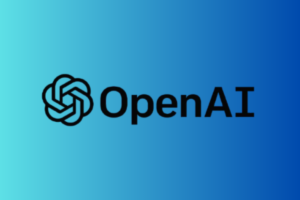Google has rolled out a new “reasoning” AI model, but it’s still in the experimental phase, and our initial tests suggest there’s room for improvement.
Referred to as Gemini 2.0 Flash Thinking Experimental, this new model is available on AI Studio, Google’s platform for developing AI prototypes. According to the model’s description, it’s optimized for tasks involving multimodal understanding, reasoning, and coding, particularly excelling in solving complex problems in fields like programming, math, and physics.
Logan Kilpatrick, responsible for AI Studio’s product development, described Gemini 2.0 Flash Thinking Experimental as “the initial phase of [Google’s] reasoning journey.” Jeff Dean, Google’s chief scientist, DeepMind, mentioned that The model is designed to leverage its reasoning skills to improve its thinking process. Dean added that “promising results” have been observed by increasing the amount of computation used during inference, which helps the model evaluate questions more thoroughly.
Developed from the recently launched Gemini 2.0 Flash model, Gemini 2.0 Flash Thinking Experimental has similarities to reasoning models such as OpenAI’s o1. Unlike traditional AI, reasoning models check their answers, which helps reduce the errors that commonly occur in other models. However, these models tend to take longer—sometimes several seconds or more—to generate answers.
When provided with a prompt, Gemini 2.0 Flash Thinking Experimental pauses to consider several related queries and “explains” its reasoning process before summarizing what it believes to be the most accurate response. In our test, however, when asked how many “R’s” were in the word “strawberry,” it incorrectly answered “two.”
The release of o1 has led to a surge in reasoning models from various AI companies. In November, DeepSeek, a firm established by quantitative traders, unveiled its own reasoning model, DeepSeek-R1. That same month, Alibaba’s Qwen team launched its own open-source model to compete with o1.
Google reportedly has multiple teams working on reasoning models, with over 200 researchers dedicated to the technology, according to recent reports from Bloomberg and The Information.
The rise of reasoning models is seen as part of the search for new ways to enhance generative AI, especially as traditional scaling methods are no longer yielding the same results. However, not everyone is convinced these models are the future. They require significant computational resources, making them costly, and while they perform well on benchmarks, it’s still unclear if they can maintain their level of progress.



